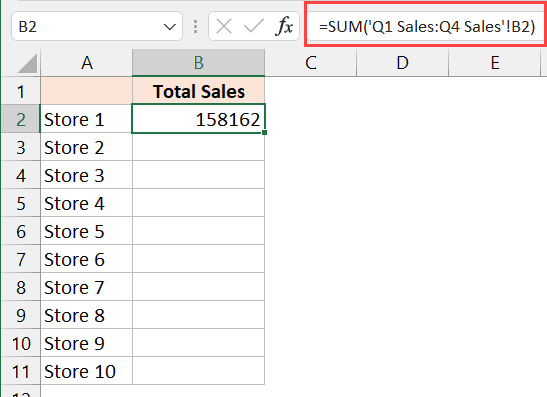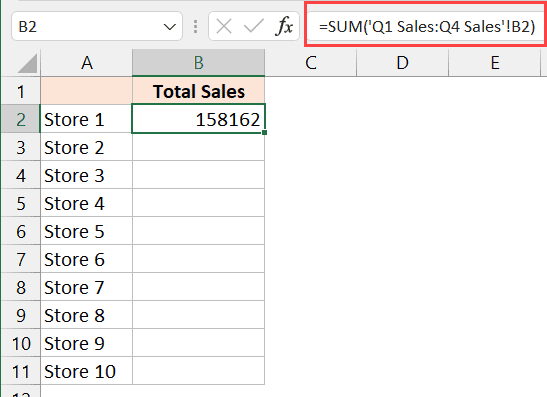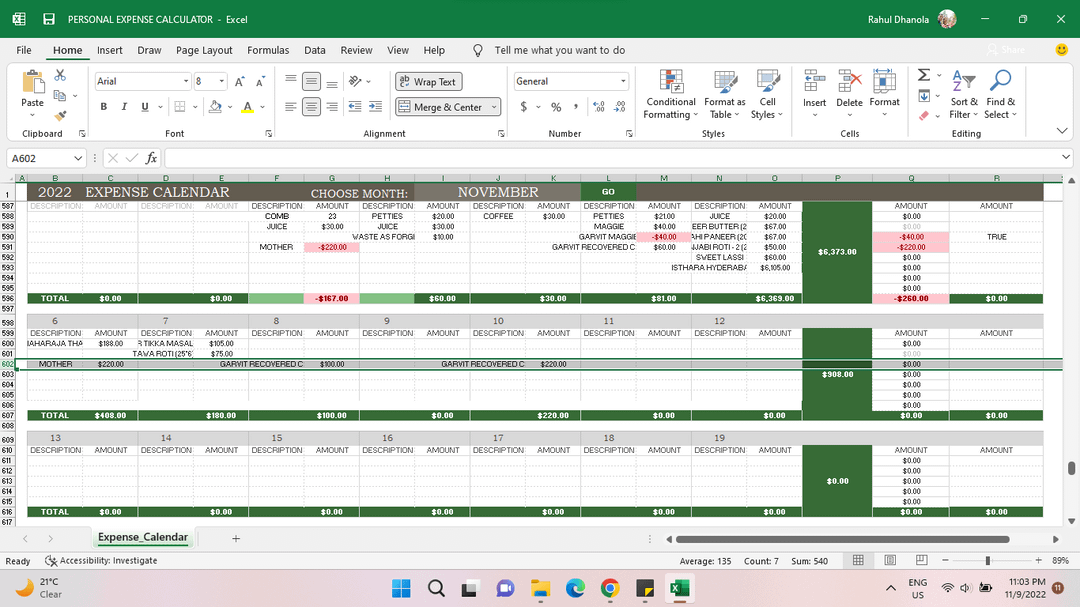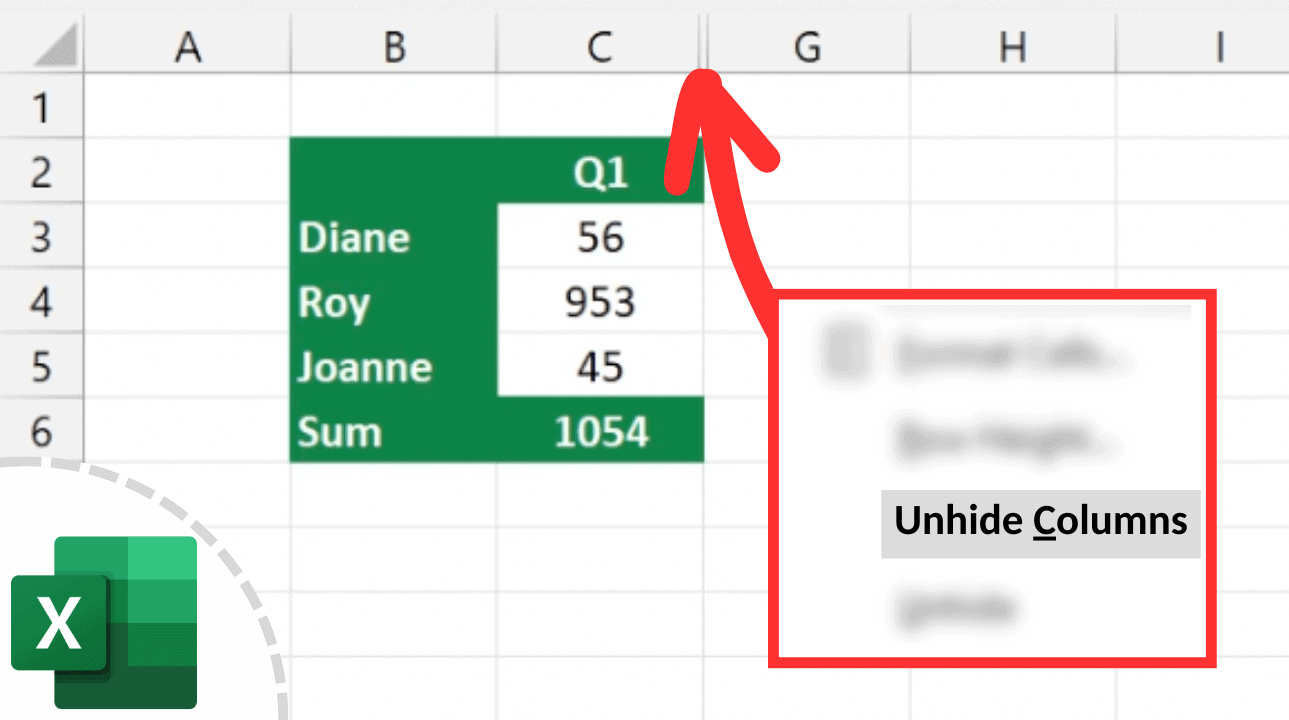5 Simple Ways to Sum Cells Across Excel Sheets

Excel is a powerful tool that can help you manage and analyze data across various applications. One common task many users encounter is the need to sum cells from multiple sheets within a single workbook. While this might seem daunting at first, there are straightforward methods to achieve this effectively. Here are five simple ways to sum cells across Excel sheets, each catering to different scenarios and user skill levels.
1. Using 3D References

Excel's 3D reference feature allows you to reference the same cell or range across multiple sheets.
- Select the cell: Click on the cell where you want the total to appear.
- Enter the formula: Use this format:
=SUM(Sheet1:Sheet5!A1)if you want to sum cell A1 across sheets named Sheet1 through Sheet5.
💡 Note: This method works only when you're summing data from sheets with identical structure.
2. SUMIFS Across Sheets

SUMIFS is versatile for summing data based on criteria, even when the data resides on different sheets.
- Formula: Use
=SUMPRODUCT(SUMIFS(Sheet1:Sheet5!C:C,Sheet1:Sheet5!A:A,"Criteria"))to sum column C where column A matches "Criteria" across multiple sheets.
This approach is particularly useful when you need conditional summing from various data sets.
3. Using Consolidate Function

The Consolidate tool lets you combine data from several sheets without writing complex formulas.
| Step | Description |
|---|---|
| Select Data | Choose where you want the consolidated data to go. |
| Source Data | Reference the ranges from each sheet. |
| Function | Select SUM as the function. |
| Create Links | Check this if you want to update the summary when source data changes. |

This method is handy when you need to periodically update the summary from different sheets.
4. Pivot Tables for Summing Across Sheets

Pivot tables can pull data from multiple sheets and sum it in a user-friendly way.
- Create Pivot Table: Go to Insert > Pivot Table and choose Multiple consolidation ranges.
- Add data: Include all the ranges from different sheets you want to sum.
This approach is excellent for dynamic data analysis and reporting.
5. VBA Scripting for Advanced Users

For more control and automation, especially with large datasets, consider using VBA.
- Open Visual Basic Editor: Press ALT + F11.
- Insert a Module: Click Insert > Module and enter the following code:
Sub SumAcrossSheets() Dim ws As Worksheet, cell As Range Dim total As Double total = 0 For Each ws In Worksheets For Each cell In ws.Range("A1") total = total + cell.Value Next cell Next ws MsgBox "The total across all sheets is " & total End Sub
Customize the range and sheets as needed. This script will sum cell A1 from all sheets in the workbook.
💡 Note: VBA scripting requires enabling macros, which might have security implications.
In conclusion, Excel offers numerous ways to sum cells across sheets, catering to different user proficiency levels and data organization needs. Whether you prefer the simplicity of 3D references, the criteria-based approach of SUMIFS, the ease of the Consolidate function, the analytical power of Pivot Tables, or the customization of VBA, there's an option for everyone. Mastering these techniques can significantly enhance your ability to manage and analyze data in Excel, making your workflow more efficient and your insights more valuable.
What is the easiest method for beginners?

+
For beginners, using 3D references is the easiest and most straightforward method. Simply type =SUM(Sheet1:Sheet5!A1) to sum the same cell across multiple sheets.
Can I sum cells based on multiple criteria?

+
Yes, you can use the SUMIFS function with ranges from different sheets, as described in the SUMIFS Across Sheets method.
How can I automate the summing process?

+
VBA scripting offers full automation capabilities. You can write a script to sum cells across sheets and even refresh this total automatically.
Is it possible to include or exclude specific sheets in the summation?

+
Yes, you can customize formulas or VBA code to include or exclude specific sheets, although it might require some manual configuration or scripting knowledge.



